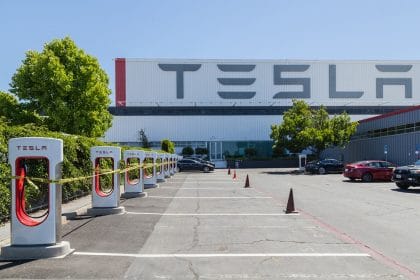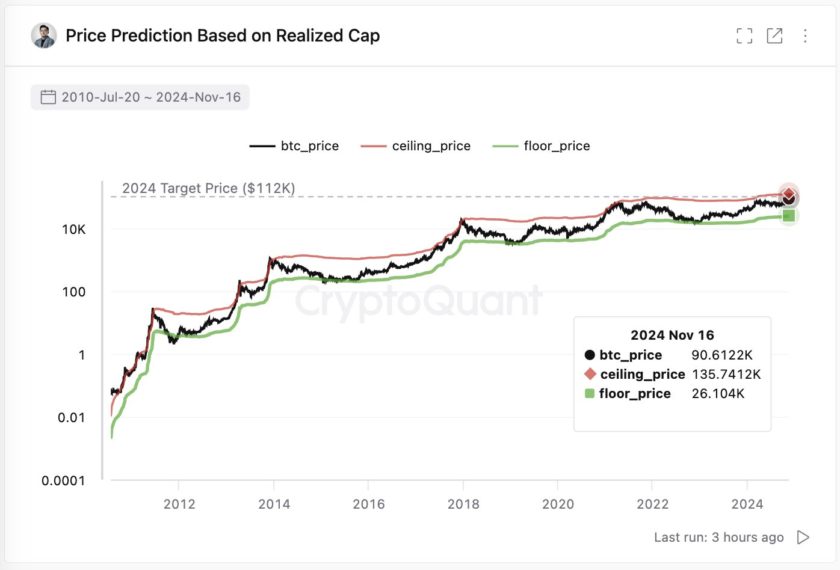Tesla’s new structural battery design will debut in Berlin in the coming year.
Tesla Inc (NASDAQ: TSLA) head honcho Elon Musk said on Twitter that the firm is presently working on new, more efficient EV batteries that are intended to be first used at its upcoming Gigafactory assembly plant located near the German capital.
Berlin will use 4680 cell with structural battery pack & front & rear single piece castings. Also, a new paint system.
Lot of new technology will happen in Berlin, which means significant production risk. Fremont & Shanghai will transition in ~2 years when new tech is proven.
— Elon Musk (@elonmusk) October 7, 2020
Tesla stated that the move would likely bring about some significant production risk as it is presently undertaking a test assembly line for these batteries at its Fremont factory. Last week, Musk also said that Sedan’s “Plaid” powertrain Model S (valued at $139,990) – a high-performance vehicle above the Ludicrous model – will use the batteries to run once the late 2021 factory is built. Tesla‘s Fremont and Shanghai plants need approximately two years to embrace this technology fully.
During September Tesla’s Battery Day, the next-generation technology was unveiled with the promise of increased efficiency.
Redesigned Model Y to Rely on the Battery’s Efficiency
Besides working on the energy storage system, Tesla is set to launch a re-engineered Model Y. Musk confidently stated Tesla aims to introduce a “core structural design change” with the production of its revamped Model Y – as it relies on fewer chassis parts compared to the current version.
The new structural battery pack technology needs to be proven as it could radically change how cars are manufactured if successful. A larger cylindrical 4680 format cell will be necessary for Tesla’s new structural battery pack to operate.
One of the detrimental effects on efficiency has been the traditional battery pack weight, which is normally more than 1,000 pounds, brings a challenge to the electric car design. Fortunately, the new battery cells reduce the number of parts needed, thereby lowering the overall vehicle’s weight as it tends to be big and more energy-dense in comparison with the present versions.
Rather than mounting the battery pack on a regular chassis, the vehicle’s front and rear and underbody will need to be connected with the battery pack after producing the parts in single pieces of casting- and that revolutionizes how cars are made.
The cost per kWh is expected to reduce by 56% reduction besides providing a more efficient battery system when the measure is implemented. With that, the company would be ahead of its rival EV makers in the future.
Tesla’s EV Future Moves
Although technical specifications are yet to be explicitly confirmed, Tesla expects Cybertruck, scheduled to be produced at the close of 2021, to incorporate 4680 cells.
At the “Battery Day” event, the company said that the new battery would enable it to make a “compelling” $25,000 electric vehicle in three years’ time.
Tesla, which thrives on the great elegance and innovation image it portrays, provided the roof of your vehicle does not fall has grown strong in a previous couple of years as it quickly developing into a major economic actor worldwide.
James Lovett is a talented crypto enthusiast who finds pleasure in sharing more knowledge on fintech, cryptocurrency as well as blockchain and frontier technologies. He likes to keep himself furnished and updated with the latest innovation in the crypto industry, blockchain technology, Internet of Things (IoT) and other technologies. As a result, he tries to furnish ardent crypto supporters with the latest news on blockchain and distributed-ledger technologies. Indeed, Blockchain and Cryptocurrency is changing the world as we know “one block at a time”. As a hobby, he also trades in small amounts of cryptos every now and then.
An author with experience writing for tech, digital, and cryptocurrency blogs!




